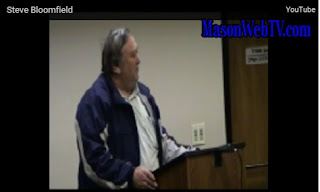Who is managing who?
Mason County Taken for a Ride
Public Loses Access to Tidelands
These are the experts in geoduck farming? 2 years later, "we don't know yet".
In August of 2013, Seattle Shellfish began formally working on acquiring tidelands between McMicken Island State Park and Harstine Island from Mason County, with the intention of growing geoduck. When Mason County decided a land swap was not workable, work on arranging a lease for those tidelands began which culminated in an April 1, 2014 lease. The county would receive 15% of the revenues. Projections of $3 million to the county now appear greatly overstated with the analysis of the tidelands being greatly understated. As of July 14, 2015, all Seattle Shellfish is able to tell Mason County is they don't know how many tidelands are suitable to grow geoduck. The Mason County Journal reported July 16 it was less than half. Who is managing who?
No, you can't dig here anymore.
Thank you Mason County.
December 2013: Tim Sheldon explaining
to fellow commissioners how ex-Commissioner
Steve Bloomfield's Seattle Shellfish will make the
County $3 million growing geoduck with
the public losing access to those acres.
Screenshot from MasonWebTV, December 11, 2013
[see at - https://youtu.be/dl5-j7Zona0]
The public's use of these tidelands is of no value. Ex-Commissioner Bloomfield with Seattle Shellfish says you'll get $3 million.
In December of 2013 Mason County Commissioners approved a resolution to lease 19 acres of prime public tidelands between McMicken Island State Park and Harstine Island. Long used by the public for digging shellfish and enjoying the intertidal experience of Puget Sound, ex-County Commissioner Steve Bloomfield with Seattle Shellfish laid out a revenue stream which the county would receive, quoting figures of $3 million dollars from revenues and $1,000 in annual acres leased. What could go wrong?
This isn't quite what I thought it would be.
April 1, 2014: "So there's an estimate of $3 million."
More or less. Commissioner Jeffreys to an attendee
of the Commissioner meeting.
Screenshot from MasonWebTV, April 2, 2014
[see at - https://youtu.be/zDK0m0IrZAM]
Entering into a lease on April Fools Day should have been warning enough.
Acting on the resolution passed in December, the county entered into a lease agreement with Seattle Shellfish April 1, 2014. At that meeting, Commissioner Jeffreys begins to back shuffle on the firmness of that $3 million in revenues. The illusion created by waving her hands belied just how weak that reality was and drove home why you should not enter into lease agreements on April Fools Day.
April 1, 2014: "It is an agricultural thing and
in agriculture you never know what tomorrow
is going to bring." Seattle Shellfish's Steve Bloomfield
Screenshot from Mason WebTV, April 2, 2014
[see at - https://youtu.be/-mSGmnym1Js]
Seattle Shellfish is supposed to be an expert in this geoduck farming "agricultural thing". At least that's what they tell their investors and those they lease tidelands from.
At that same meeting, ex-Commisioner Steve Bloomfield with Seattle Shellfish began to explain why there may be cracks in the promises made. Pounding his fists together, Mr. Bloomfield explained to an attendee that some of the tidelands were "hardpan, like this floor." Mr. Bloomfield continued on to explain that Seattle Shellfish really didn't know how many acres could actually grow geoduck. Did the Commissioners then wonder just what it was they had entered into on April 1? Apparently not.
April 14, 2015: "Maybe a little bit of income
for the County over the years."
Ex-commissioner Steve Bloomfield w/Seattle Shellfish
Screenshot from Mason WebTV, April 15, 2015
[see at - https://youtu.be/23tjxtyHC18]
Yes, we've completely evaluated the sediments and habitat area and we know exactly where we are going to plant geoduck. At least on paper.
Despite the now apparent lack of awareness in just what tidelands were usable for geoduck, Seattle Shellfish forged ahead with permits. In those permit applications Seattle Shellfish was clear in stating they would be developing a geoduck farm on 19 acres. [corrected 7/19 - SS did note they were unsure of sediment types and what could be planted. Why approval was granted remains a question.]. Based on drawings submitted June of 2014, and information provided on the sediments and habitat by Seattle Shellfish, the Corps asked for an opinion from the US Fish and Wildlife and National Marine Fisheries Services. Based on that apparently flawed data, they approved a permit for the proposed 19 acre geoduck farm in December of 2014. As recently as April 14, 2015, Mr. Bloomfield was still assuring the county they were forging ahead and the county would be receiving a "little bit of income". Someday. How much that would be was no longer being stated as $3 million.
The dog days of summer slow thinking down.
July 14, 2015, ex-Commissioner Bloomfield stood before two Mason County Commissioners and explained Seattle Shellfish was wrong in estimating how much of the tidelands would be usable for geoduck. They were apparently unaware that the center of the lagoon area was a "catch basin" for aquatic vegetation which created anaerobic conditions in the sediments, which for an unexplained reason, were not compatible with geoduck aquaculture. Commissioner Sheldon, who originally extolled the benefits of the lease arrangement, was absent from the meeting. Ms. Jeffreys, instead of asking why it had taken Seattle Shellfish so long to determine their estimates were so wrong, thanked Mr. Bloomfield for keeping her aware. You may listen to ex-Commissioner Bloomfield explain the situation and the commissioners inability to question why things were now so understated by downloading this zip file, beginning at 5:55. Or simply shake your head and wonder who is managing who.
Get involved. The shellfish industry is.








No comments:
Post a Comment